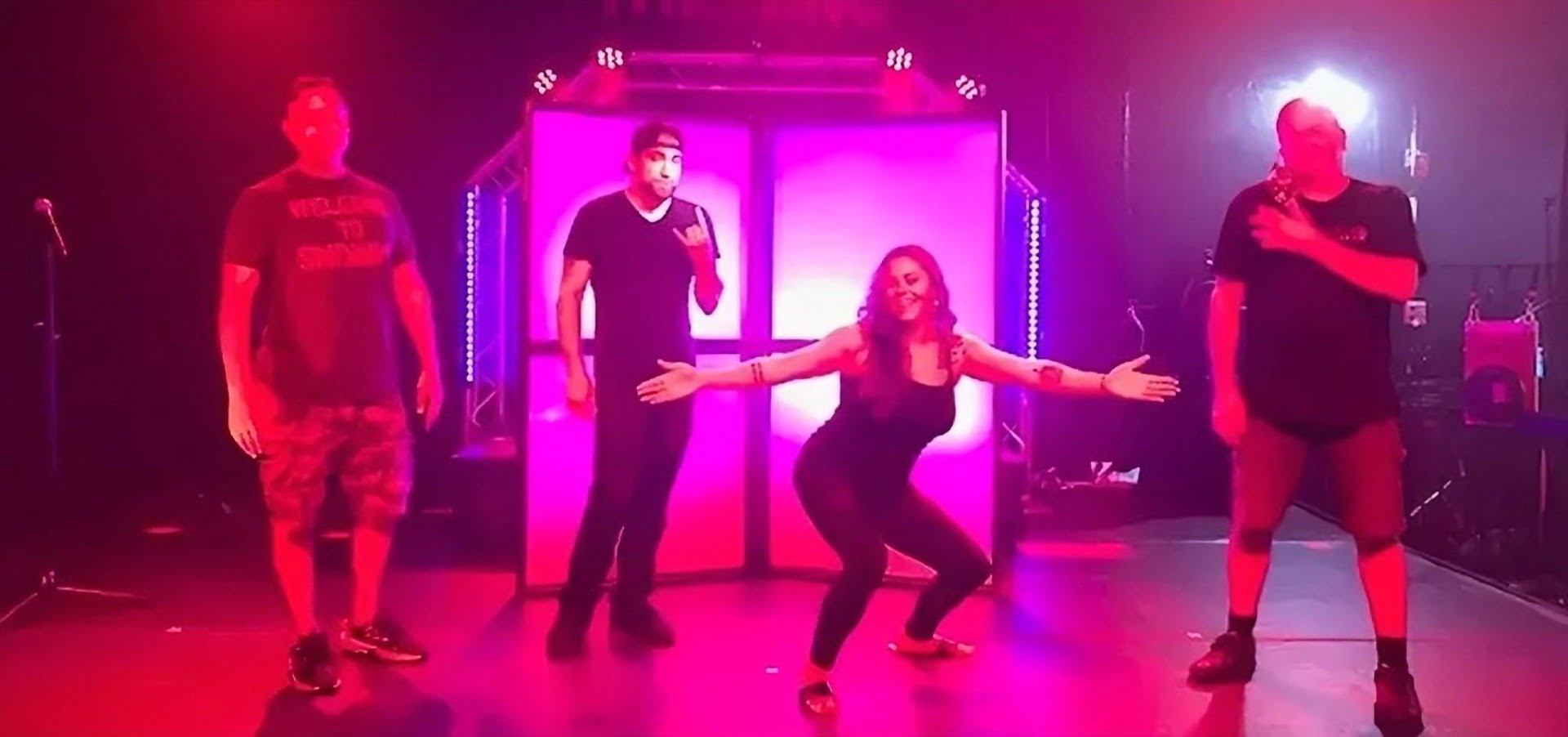Rye Catchers is a dynamic and ever-changing assemblage of one-of-a-kind artists from around the United States and internationally, carefully curated by songwriter and producer David McClintick Roberts. Rye Catchers specializes in sophisti-pop but also appreciates EDM and lo-fi/chillhop. Rye Catchers produces its music to be entertaining listens with its own distinct sound and identity, with nice chords and breezy yet profound lyrics.
His latest track “Ordinary” is a catchy electro-pop track with sensuous vocals by Spanish singer Nekane and powerful beats by Nigerian DJ duo Maze X Mxtreme. & David McClintick Roberts wrote and produced the song.
Check out the exclusive interview below:

1. Can you tell us a bit about where you come from and how you got started?
RYE CATCHERS: Though born in Illinois (USA), and having moved all over the country and abroad early on (Arizona, Connecticut, Iowa and even a couple years in the UK) I identify now as a Wisconsinite (yes, I like the Packers and cheese; those stereotypes are true in my case). I have always loved music and I’m one of those people who actually notice soundtracks and the music used in adverts; if something grabs me, I take note and try to discover the source or artist. I began really playing music in high school as a drummer in a garage band. That led to composing on keys (our keyboardist would leave his gear at my home after band practice and I would enjoy playing on his equipment and I developed basic composition skills that way).
2. Did you have any formal training or are you self-taught?
RYE CATCHERS: Self-taught. I don’t have a lot of patience, so I find it more easy to ‘play by ear’ and struggle that way as opposed to formally learning how to play an instrument.
3. Who were your first and strongest musical influences and why the name ‘RYE CATCHERS’?
RYE CATCHERS: There are so many great artists and musicians that it is always limiting to name just a few. I will say early on I was influenced by Vangelis (one of the first instrumental and synth-based artists I was exposed to). As a teen in the ‘80s, most of those bands from that era were also a huge influence, ranging from prog rock like Rush, to synth based bands like Talk Talk, to groundbreaking mega stars like The Police and Sting. I also found an affinity early on for the classic big band acts like Harry James, Ella Fitzgerald and Benny Goodman, to name just a few. In sum, I enjoyed all genres and when asked what my favorites were, I always answered: “anything, so long as it’s good.”
The name Rye Catchers was derived from JD Salinger’s book title ‘The Catcher in the Rye’ – that author was a one hit wonder and my goal is to be exactly the same. Just one hit is all anyone needs to be remembered.
4. What do you feel are the key elements in your music that should resonate with listeners, and how would you personally describe your sound?
RYE CATCHERS: Hopefully my sound is a real blend of many different elements and not easily identifiable. There are often ‘80s retro vibes present, along with more modern production sensibilities, but my goal is to avoid being genre specific and instead make music that is alluring and a bit different. That may be off putting to some as many want or demand a certain canned genre, but that is boring to me. When I have to describe my music, I often use the term ‘pop’ as that is so generic. However, my drive is to infuse each song with its own identity, use chords that contrast and that have a sense of drama, while still remaining melodic and enjoyable listens.

RYE CATCHERS: Every single artist is reliant on all the great artists the came before. There are a finite number of chords and chord progressions and themes. What each new artist does is take something that has likely (at least in part) already been done and lend it a new and distinct tone, voice and angle. No artist can develop in a void so I am constantly listening to old and new music, always analyzing what makes a song successful, and absorbing those elements mentally. By listening to and appreciating others, one can become better.
6. What’s your view on the role and function of music as political, cultural, spiritual, and/or social vehicles – and do you try and affront any of these themes in your work, or are you purely interested in music as an expression of technical artistry, personal narrative and entertainment?
RYE CATCHERS: I avoid politics in music as that will remove at least half of any given audience (and politics are way too ephemeral of a target to memorialize in song). But I do think music can sometimes be used for some social statements (one song I am redoing and that is pending release is titled ‘Stupider’ and it pokes fun at smart phones in a pithy way). That aside, I am a big believer that music’s primary function is to entertain and create moods – it should be escapism. Music should enhance. It is great when a song can be appreciated for its technical craftsmanship, but that should almost be secondary and subliminal and the true expression and enjoyment should shine through first and serve to simply please the listener.
7. Do you feel that your music is giving you back just as much fulfilment as the amount of work you are putting into it, or are you expecting something more, or different in the future?
RYE CATCHERS: Every artist dreams and works towards being a successful musician. In my book that means earning enough income from music where it can be the primary job. However, I think there is a stat that says approximately .002 (there might be more zeros in there) of all artists can achieve that definition of success. That means you had better love the process of creating and producing music because the chances of making a real income from music is beyond miniscule. Another stat: there are now something like 60,000 new songs released each day on Spotify, so the competition is more than loud. So, my answer is yes, I achieve so much satisfaction from writing and producing the best music I can, even if the rewards are internalized only.
8. Could you describe your creative processes? How do usually start, and go about shaping ideas into a completed song? Do you usually start with a tune, a beat, or a narrative in your head? And do you collaborate with others in this process?
RYE CATCHERS: I always begin with hammering out chords on my keyboard (an old Ensoniq ZR-76, which includes a 16 track sequencer / workstation for recording ideas). The music and chords come first. After I have a good chord progression I will pause and see if a melody line materializes. From the melody line I will come up with a theme and the lyrics. I know other musicians often work in reverse, but I have to have the motion and emotion of the music prior to a theme or lyrics. Once I have my rough song I almost always collaborate on the production – I add guitarists, bassists, singers, and so on, as I can’t do it all, and I certainly can’t sing. (The most humbling part of the process is recording my vox / melody for other professional singers – I know my rough vocals are coarse, but it has to be done so the singers know the general placement and phrasing.) Some say a person may have a face for radio; mine is a voice for silent cinema.
9. What has been the most difficult thing you’ve had to endure in your life or music career so far?
RYE CATCHERS: As far as the greatest music career challenge, simply becoming a better and more thoughtful composer and producer myself! When I listen to some work from even just a few years ago my first instinct is to go back and redo it (and I have done that in a couple instances). However, sophistication and finesse and good execution all come with experience so, with time and work, hopefully those things follow. Also, finding the right people to work with. That took some time, and while I am thankful to have worked with so many cool and talented people along the way, I feel like I have found a lot of ideal talent to deploy for my current and most recent efforts.
10. On the contrary, what would you consider a successful, proud or significant point in your life or music career so far?
RYE CATCHERS: That one’s easy – I consider myself a good father to my 13-year- old son whose presence is the greatest music there is.
KEEP IN TOUCH:
FACEBOOK | INSTAGRAM | SPOTIFY


